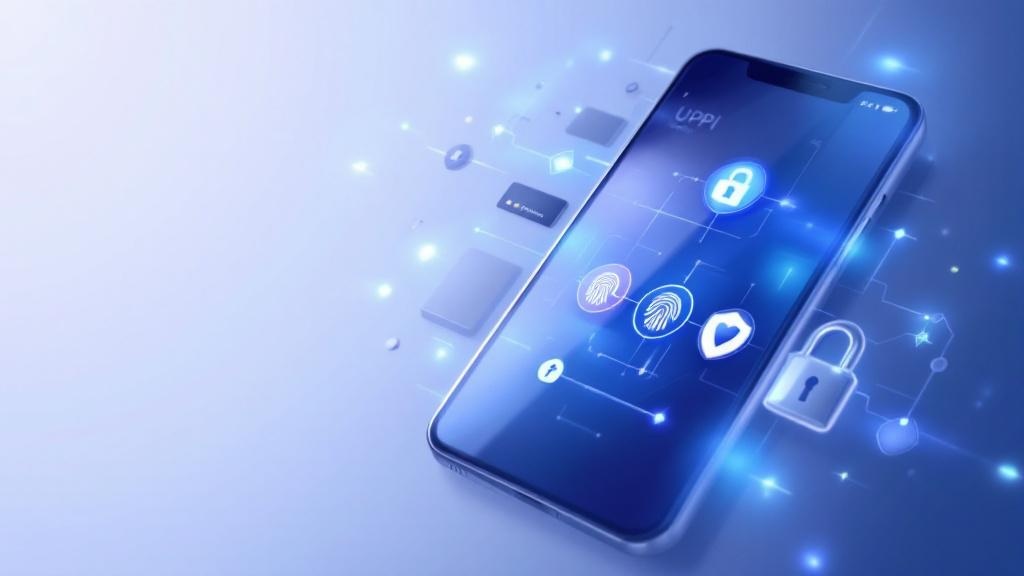The rise of digital payments in India has been nothing short of revolutionary, and the Unified Payments Interface (UPI) has played a pivotal role in simplifying transactions for millions. But with the growing adoption of UPI, concerns about its security have also surfaced. Can UPI be hacked? What are the potential risks? In this comprehensive guide, we will explore these questions, separate myths from facts, and provide tips to secure your UPI payments.
Table of Contents
-
Introduction: The Surge of UPI and the Security Concern
-
How Secure Is UPI? The Basics of UPI Security
-
Common Myths About UPI Security
-
Myth 1: “UPI Can Be Easily Hacked”
-
Myth 2: “UPI PIN Can Be Stolen from Your Phone”
-
Myth 3: “UPI Is Not Secure for Large Transactions”
-
-
Real Risks: UPI Security Loopholes
-
Phishing and Identity Theft
-
Bank Fraud via UPI
-
Data Breach in Digital Payments
-
-
UPI Fraud Prevention Tips: Protect Yourself
-
Use Multi-Layer Authentication
-
Enable Secure Digital Wallets
-
Be Wary of Phishing Attacks
-
-
RBI Guidelines for UPI Security
-
How to Report UPI Fraud
-
FAQs: Answering Your Most Common UPI Security Questions
-
Conclusion: Is UPI Safe to Use?
1. Introduction: The Surge of UPI and the Security Concern
UPI, launched by the National Payments Corporation of India (NPCI), has transformed the way Indians make payments. From paying for groceries to transferring funds between banks, UPI has made transactions quicker, simpler, and more efficient. However, as with any popular platform, it has attracted both praise and concern.
In recent years, questions have arisen regarding the security of UPI. “Can UPI be hacked?” has become one of the most searched queries related to digital payments. This article will address these concerns and clear the air about the myths surrounding UPI security.
2. How Secure Is UPI? The Basics of UPI Security
Before diving into common myths, it’s essential to understand the basic security features of UPI.
End-to-End Encryption
One of the most critical features of UPI security is end-to-end encryption. This ensures that when you make a transaction, the data exchanged between you, your bank, and the recipient is encrypted. This makes it nearly impossible for hackers to intercept or read your payment information.
Multi-Layer Authentication
Most UPI apps require multi-layer authentication. Typically, this involves entering a UPI PIN, a unique 6-digit number only known to the user. Even if a hacker gains access to your phone, they cannot perform a transaction without the PIN.
Bank-Level Security
UPI transactions are backed by the security protocols of the bank’s payment gateway protection. Banks and payment apps use highly secure servers to process payments, minimizing the risk of fraudulent activities.
3. Common Myths About UPI Security
Let’s bust some common myths about UPI security.
Myth 1: “UPI Can Be Easily Hacked”
One of the most prevalent misconceptions is that UPI can be easily hacked. While no system is 100% immune to attacks, UPI security measures, including multi-layer authentication and end-to-end encryption, make it highly secure. Unless someone has physical access to your phone and knows your UPI PIN, hacking your UPI account is virtually impossible.
Myth 2: “UPI PIN Can Be Stolen from Your Phone”
Another myth is that a hacker can easily steal your UPI PIN from your phone. UPI PINs are stored in an encrypted format in your phone, which makes it difficult for attackers to access them. Moreover, most UPI apps require an additional layer of authentication, such as a fingerprint or face recognition, further protecting your PIN.
Myth 3: “UPI Is Not Secure for Large Transactions”
Some people believe that UPI isn’t secure for large transactions. This is far from the truth. UPI transactions are designed to be secure regardless of the amount. The RBI guidelines for UPI include strict security checks, and as long as users follow safe practices, they can make large payments safely.
4. Real Risks: UPI Security Loopholes
While UPI security is robust, there are certain UPI security loopholes that users must be aware of. Let’s take a closer look at the real risks.
Phishing and Identity Theft
Phishing is one of the most common ways fraudsters target UPI users. They send fake messages or emails that look like official bank communication, asking you to share personal information or UPI PINs. If you fall for these scams, you risk identity theft online.
Bank Fraud via UPI
Bank fraud via UPI can happen when you unknowingly authorize a payment through a fraudulent app or website. Always ensure that you are using legitimate UPI apps and avoid sharing sensitive information like UPI IDs or PINs.
Data Breach in Digital Payments
In the rare event of a data breach in digital payments, hackers could potentially access your financial data. However, reputable UPI platforms are continually improving their security systems to prevent such breaches. Always keep your app updated to the latest version to benefit from security patches.
5. UPI Fraud Prevention Tips: Protect Yourself
While UPI is generally secure, taking a few extra precautions can help safeguard your transactions.
Use Multi-Layer Authentication
Enable multi-layer authentication wherever possible. Many UPI apps allow you to use additional security features like fingerprint authentication or face recognition. These extra layers of security make it harder for fraudsters to access your account.
Enable Secure Digital Wallets
Ensure that you are using a secure digital wallet or UPI app. Trusted apps from reputed banks or payment platforms like PhonePe, Google Pay, or Paytm offer strong security features and are constantly updated to protect your data.
Be Wary of Phishing Attacks
Be cautious of any suspicious messages or links requesting your personal details. Always verify the source before clicking on links or sharing sensitive information.
6. RBI Guidelines for UPI Security
The Reserve Bank of India (RBI) has issued comprehensive guidelines to ensure UPI’s security. These include:
-
Regular monitoring of UPI fraud cases.
-
Mandatory multi-layer authentication for all UPI transactions.
-
Stringent verification procedures for large transactions.
-
Recommendations for payment gateway protection and secure online payments.
7. How to Report UPI Fraud
If you fall victim to fraud, it’s essential to act quickly. Here’s how you can report UPI fraud:
-
Contact your bank immediately: Most banks have a dedicated helpline or customer service for reporting fraud.
-
Report on the UPI app: Many UPI apps offer fraud reporting features within the app.
-
File an FIR: If the fraud involves a significant amount of money, you should also file a cybercrime helpline India complaint or an FIR.
8. FAQs: Answering Your Most Common UPI Security Questions
1. Can UPI be hacked?
UPI is secure when used correctly. While no system is 100% hack-proof, UPI’s encryption and multi-layer authentication make it extremely difficult for hackers to breach.
2. Is UPI safe to use for large transactions?
Yes, UPI is safe for large transactions. Ensure you follow security protocols, such as using multi-layer authentication and verifying the legitimacy of recipients.
3. Can UPI PIN be stolen?
UPI PINs are encrypted on your phone, making them difficult to steal. However, you should avoid sharing your PIN and enable additional security features like fingerprint authentication.
4. How can I protect myself from UPI fraud?
Use multi-layer authentication, avoid sharing sensitive information, and always verify the source of messages or payment requests.
5. What should I do if I fall victim to UPI fraud?
Report the fraud to your bank immediately, file a complaint on the UPI app, and consider filing an FIR with the police.
9. Conclusion: Is UPI Safe to Use?
UPI is a secure and convenient way to make digital payments, thanks to its robust security features like end-to-end encryption and multi-layer authentication. While there are risks involved, such as phishing and fraud, following safety practices can help protect you from falling victim to scams.
So, can UPI be hacked? The short answer is no, as long as you follow security best practices. With the right precautions, UPI is safe to use for both small and large transactions.
By understanding how UPI works and taking proactive steps to secure your information, you can enjoy the convenience of digital payments without worrying about fraud or security risks.








Comments (0)